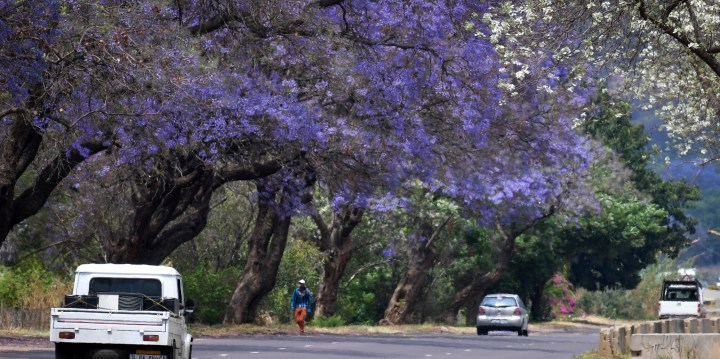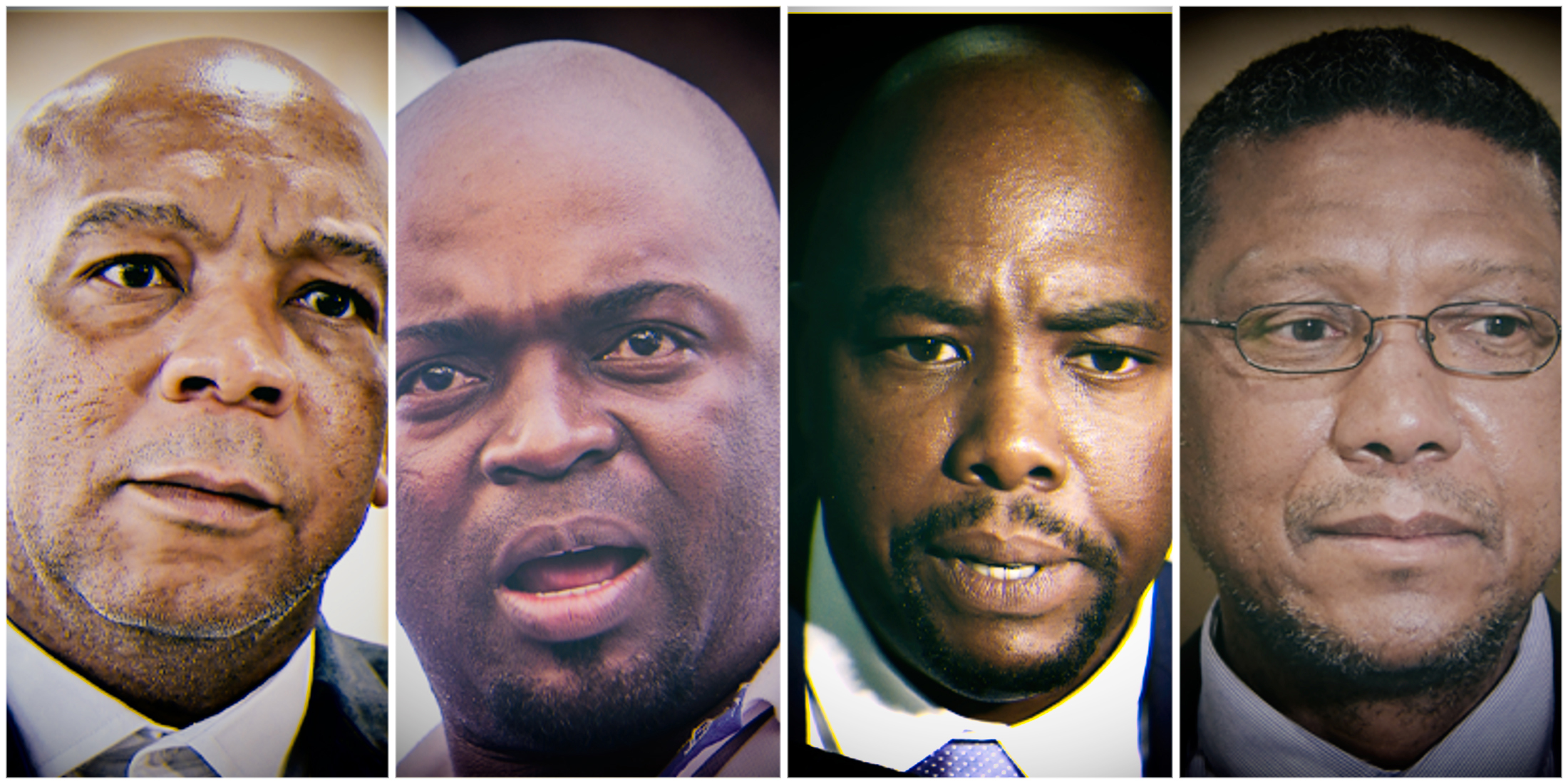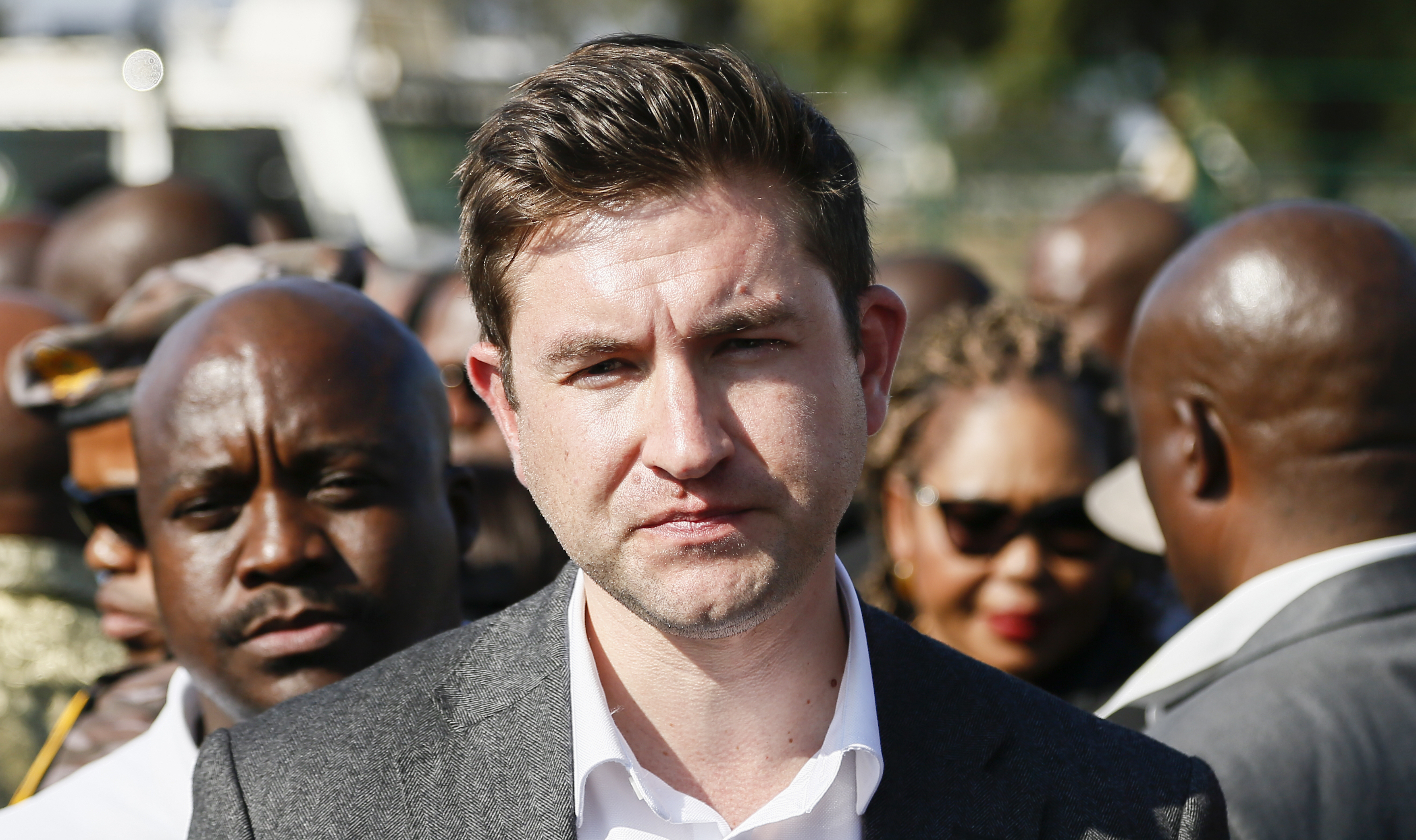TSHWANE ANALYSIS
Trouble with a capital T – Jacaranda City municipality is wilting under bad finances and scandal

In the Auditor-General’s polite language, doubt exists about the City of Tshwane Metropolitan Municipality continuing as ‘a going concern’. These financial alarm bells are being sounded amid a merry-go round of mayors in a core metro in the country, a metro that has also racked up a debt of almost R2-billion to Eskom. But residents are not watching idly - some are protesting in the streets for better services, and others like the Queenswood Residents Association, are putting the books under scrutiny.
What is to be done about Jacaranda City? For the most recent year, 2021-22, the Auditor-General (AG) has expressed an “adverse opinion”, meaning that its financial statements were “so unreliable that they cannot be used for oversight and decision-making”.
Tshwane was one of only six municipalities blessed with such an opinion, and the only metropolitan municipality. No wonder it has also been shrouded in scandal.
The most recent scandal was a deadly cholera outbreak in Hammanskraal blamed on leakage from the Rooiwal wastewater treatment plant into drinking water. And, according to DA mayor Cilliers Brink, “a stain on our conscience as a City, including successive administrations of several parties”, as well as a warning of what could happen in other communities.
Scandals aside, one way of trying to understand municipal finances is viewing them as businesses. Almost 10 years ago Mark Barnes, before he, like André de Ruyter, ventured into heading a state-owned enterprise, posited: “Running a municipality is a fairly simple business, compared to most businesses in the private sector.”
Read Daily Maverick’s coverage of the cholera outbreak here.
He went on to write: “What about pricing policy? Anything you like, really. You’re a government-legislated monopoly. You can charge what you like, and if they don’t pay, regardless of the quality of your delivery, you cut off their vital services until they do. Simple.”
He might want to revise that statement of how simple it is now that he’s had experience of running the Post Office, but it’s an interesting comparison.
It’s true, for instance, that a municipality, unlike the national state, can go bankrupt – and in recent years many municipalities, including Tshwane, have been identified as such. In the AG’s polite language, doubt exists about the Tshwane municipality continuing as “a going concern”. No doubt the province and national government would step in to stop this happening, just as shareholders are asked to stump up money in rights issues in the private sector.
A city that neglects its middle class and its business sector to focus entirely on the poorer areas and people is looking for trouble.
The basic model for municipalities is that money raised from property rates and the profit from retailing water, electricity and sanitation services will pay for municipal staff and the wholesale cost of water, electricity, sanitation and other services.
They are audited, as businesses are – though differences with business start here. The municipal audit covers more than simply assuring that the financial reporting is kosher. The AG is also charged with checking that the reporting on performance indicators adds up and that municipalities comply with key laws.
The ultimate discipline of private businesses is that if they overlook fraud and misspending they go out of business for good. A bankrupt municipality would have to be replaced by another that does essentially the same thing.
Also, although municipalities have residents as captive customers, those residents are also citizens, who have a vote. Indigent citizens are supposed to get free services.
Also, municipalities are one tier of South Africa’s three-tier system of cooperative governance, along with the national government and the provinces. Municipal budgets are part of the redistribution of income implicit in national finances. The richer citizens are supposed to subsidise the poorer citizens.
The Tshwane budget does devote itself to making the lives of the poorest better. Whether it is enough should be a matter for those voters of Tshwane to decide.
A city that neglects its middle class and its business sector to focus entirely on the poorer areas and people is looking for trouble. It needs the wealthier ratepayers to provide the money for roads, electricity and water distribution, and sanitation, among other things, that all residents use. Individuals and businesses do choose to move to other cities and towns where they believe they will be better served.
Read more in Daily Maverick: Fists, foul language and legal threats fly in Tshwane council after dramatic vote for speaker
It is a tricky balancing act. Wealthier residents and businesses tend to have the resources, in time and money, to study the problems and attract the municipality’s attention. Poorer residents may not have these resources but they also need to organise to ensure their interests are taken care of.
And overlaying all this are political interference with public servants and the potential, if not actual, chaos of coalition politics. Local government representatives are supposed to be chosen on the basis of what they can contribute locally, but in practice parties dominate local politics.
A new grouping of independent councillors was recently formed, the Republican Conference of Tshwane (RCOT), which now has one councillor, Lex Middelberg (see above composition of the metro). The founding idea of the conference is to change municipal politics from top-down party-political to bottom-up. Rather than having councillors who are, in Middelberg’s words, “glorified call-centre agents” mediating service delivery problems between residents and the municipality, it would create a system where councillors directly represent the interests of their communities in council in guiding municipal policy and strategy.
That shows no sign of happening soon. Tshwane council has to hope its coalition is robust enough in the next three years – the time it has given itself to sort out its financial mess. DM

From left: Kgosientsho Ramokgopa. (Photo: Darren Stewart / Gallo Images), Solly Msimanga (Photo: OJ Koloti / Gallo Images), Stevens Mokgalapa (Photo: Phill Magakoe / Gallo Images), Randall Williams (Photo: Deaan Vivier / Gallo Images)
Merry-go-round of mayors as contract scandals, court challenges, forced resignations and dodgy histories play out
Kgosientsho Ramokgopa
Last ANC mayor. Business Day said “the largest blight on his legacy” was a project to roll out smart prepaid electricity meters. The contract to install the meters was successfully challenged in court and opposition parties said it had cost billions of rands in unnecessary expenditure.
Solly Msimanga
First DA mayor. He stated his intention to outlaw blue-light brigades for everyone except the President. In August 2018, both the EFF and ANC had tabled motions to remove him. His last months were spent challenging his municipal manager Moeketsi Mosola, blaming him for the irregular awarding of a multimillion-rand tender to engineering company GladAfrica which the Auditor-General declared irregular.
Stevens Mokgalapa
In November 2019, a controversial audio clip came to light in which Mokgalapa said he planned to fire a colleague. The DA said it would be investigating the matter and placed him on leave. Facing mounting pressure from his own party and others, he announced on 2 February 2020 that he would resign.
Randall Williams
Williams was elected on 30 October 2020. He resigned on 13 February 2023, having come under pressure to do so after the City received an adverse audit opinion from the Auditor-General for the 2021/22 financial year. It had racked up R1.2-billion in wasteful expenditure in this period.
Murunwa Makwarela
COPE mayor. Makwarela served from 28 February until he was fired by the city manager on 7 March for being declared insolvent in 2016. He was reinstated on 9 March but resigned a day later after it was found that the rehabilitation certificate he produced to be reinstated was fraudulent.

Tshwane mayor Cilliers Brink at Temba Stadium on 8 June 2023 following the cholera outbreak. (Photo:Felix Dlangamandla)
Cilliers Brink
DA mayor. Brink was elected during a council meeting on 28 March with the help of the multiparty coalition in Tshwane, which includes the Freedom Front Plus. He defeated COPE’s new councillor, Ofentse Moalusi, winning by 109 votes to Moalusi’s 102.
Residents’ association puts the budget under close scrutiny
Tshwane’s financial problems are well known, thanks to the Auditor-General’s report, but a group of the metro’s residents has helped to focus more closely on them.
Eon de Koker, chairperson of the Queenswood Residents Association, approached Daily Maverick with detailed concerns about the 2023/24 budget, which we took to the member of the mayoral committee for finance, Peter Sutton.
The residents’ association believes the budget to be unrealistic. Sutton maintains the association is wrong.

“In terms of legislation… the budget must be based on realistic income expectations. The budget is based on realistic income expectations,” he says.
The association believes the city could do more to tackle the power outages caused by load shedding.
Sutton says: “We can always do more but massive investment is done into the electrical infrastructure as part of the [focus on] protection of revenue… More can always be done but it has to be in line with available resources.”
The residents’ association says that, over the past eight years, the Tshwane financial statements show a deficit for most years. The association maintains that the budget for the coming year is “unfunded”.
Sutton is unapologetic: “The budget has been unfunded for eight years and will be unfunded for the foreseeable future. Current liabilities far exceed current assets and it will take us time to fix this. Projection is three years.
“Adopting an unfunded budget is not uncommon and National Treasury provides us [with] approval every year [so] that the unfunded budget can be approved.”
Read more in Daily Maverick: City of Tshwane circus intensifies as Cope officials differ over its sole councillor’s status
The residents’ association says the deficits are caused by overestimating revenue and not cutting spending.
Sutton disagrees: “Revenue gets realistically estimated but aspects like technical and non-technical outages can cause undercollection. Also, illegal tampering can steal revenue.
“We are placing a number of controls in place to address these and to set the foundation for an overcollection of revenue. It is about being realistic. The revenue base of the City is R2.8-billion a month. That is the invoice value.
“You can’t exceed your invoice value or revenue base in projecting income, and then one has to consider that there is no municipality which can brag a 100% payment level on current accounts. So our budget is prepared on a 90% expected payment level of the revenue base.”
On electricity, the residents’ association thinks feed-in tariffs are “a joke”. Are they high enough to be an incentive to supply solar power to Tshwane?
Sutton says: “We have established a task team specifically aimed at investigating and recommending changes to incentivise and action in-feeding. High priority to get finalised.”
What can practically be done to avoid bankruptcy after the audit report?
“The going-concern aspect is linked to the funded budget aspect and will take some time to correct,” he says.
The residents’ association has flagged capital underspending as a priority. In his budget speech, Sutton admits the problem: “We need at least another 5% or R2.5-billion for capital investment in Tshwane.”
But he says the city does not have the money. He notes that Tshwane’s “capital budget and investments are almost wholly dependent on grant funding” and gives the assurance that this is the last year that capital investment will be so low. DM
A picture of extreme dysfunction: the City of Tshwane’s money problems go back many years
The money problems of Tshwane, so dramatically revealed by both the annual report and the review of the city’s financials by the Auditor-General, started some time ago.
In 2015, a year before the local government elections that ended the reign of the ANC, small, independent news magazine Noseweek wrote about procurement practices at Tshwane that we would have found outrageous then but now seem, and this says something about our state of mind, not so surprising.
Jean Wallace wrote in 2016 of the rotten practices in “supply chain management” that the newly elected coalition government faced.
And she gave one example, among many rip-offs, of multiple orders for tens of thousands of small cans of Kiwi shoe polish – for what purpose no one even now appears to know – at three times the retail price.
The tipping point, however, came under the rule of the luxury brand-loving ANC mayor who is now our electricity minister. The infamous PEU R950-million smart meter contract of 2012 awarded by Kgosientsho “Sputla” Ramokgopa was declared unconstitutional and set aside by the North Gauteng High Court in 2017.
Tshwane’s present mayor has described the PEU contract as “a financial disaster for the City” from which Tshwane still hasn’t recovered. He has stated that the contract has cost the city R2-billion, and even now Tshwane finds itself saddled with a R4.7-billion VAT bill from that contract.
It is not only the ghost of the PEU contract the city has to deal with but, apparently, an inherited culture of corruption in its procurement division. MMC for finance Peter Sutton echoes the mayor’s comments that the supply chain management division is a “festering sore infecting the body” of the City. This impedes the City from getting the material it needs to fix what needs to be fixed. The seriousness of the problem is illustrated by debate in the council not on whether supply chain division members should have lifestyle audits, but how.
The City may not have enough material. What it does have is an abundance of staff, and it expects to spend R12-billion on salaries for the workforce of 19,000, though, according to Sutton, skills are lacking in some departments. This skills shortage is borne out by the amount spent on consultants to complete the financial statements.
According to the AG, since 2016-17, most of the more than R900-million spent by Gauteng municipalities on consultants for financial reporting was spent by Tshwane on producing a compliant fixed asset register so that the metro can manage all its assets properly. In the 2021-22 year, despite Tshwane spending almost R115-million on this same task, the AG identified material misstatements in the consultants’ work.
Tshwane’s group finance department employs almost 1,800 people, according to the annual report.
The R12-billion salary bill would be higher if the salaries were, as is usual in South Africa, adjusted for the inflation rate, which is about 7%. The zero increase in salaries may be unavoidable but it is bound to lead to low morale – if not volatile public protests.
Public protests by citizens and workers about something else, electricity provision, are not uncommon. Again, Sutton admitted that residents and business owners are “not impressed with our ability to manage electricity provision” but unveiled no new plan to deal with the problem.
This is a major criticism by the Queenswood Residents Association, which would like to see projects to mitigate load shedding and evaluate providing alternative energy to Eskom, including urgent additional power and back-up power at municipal offices delivering services to residents.
One way of dealing with load shedding is to encourage businesses to install independent power generation – mainly, one supposes, solar power – and sell the excess back to the city.
The metro’s annual report notes that less than a fifth of the planned “installed capacity of approved embedded generators on the municipal distribution network” of 5,000kVA was achieved.
The target is one of the 30 indicators in the metro’s “Strategic pillar 3 – A city that delivers excellent services and protects the environment”. It is one of several highlighted by the AG as deficient.
The picture painted is one of extreme dysfunction. The city has to deal with potential losses from the past and a clear pattern emerges of previously – aside from corrupt tenders and the like – unrealistically overestimating revenue in the budget, according to Sutton. He insists that the projections of income in the budget for next year are realistic. It does seem the metro’s management is serious about tackling the financial mess, though we should not let the coalition government off the hook for not doing proper oversight in the recent past.
To underline its financial dysfunction, Tshwane has racked up a debt of almost R2-billion to Eskom. The City has admitted the problem but it’s not clear where the money will come from to settle the debt.
What about “consequence management”? The man who oversaw an obviously flawed contract for electricity meters has been elevated to a ministerial post. We should ponder what message that sends to citizens. DM
This story first appeared in our weekly Daily Maverick 168 newspaper, which is available countrywide for R29.






















 Become an Insider
Become an Insider
Brother, thy tail hangs down behind!
The normal basic accounting premise is to apply the 80-80 principle. Project as receiving 80% of possible income and 80% efficiency in collecting it. In other words use 64% as a base. If you achieve more than that you have a surplus to sort out other issues. Historical data would also assist in setting a realistic achievable budget
just fire anyone from SCM/ procurement/ management who had any part in awarding dodgy contracts . . .and lay charges